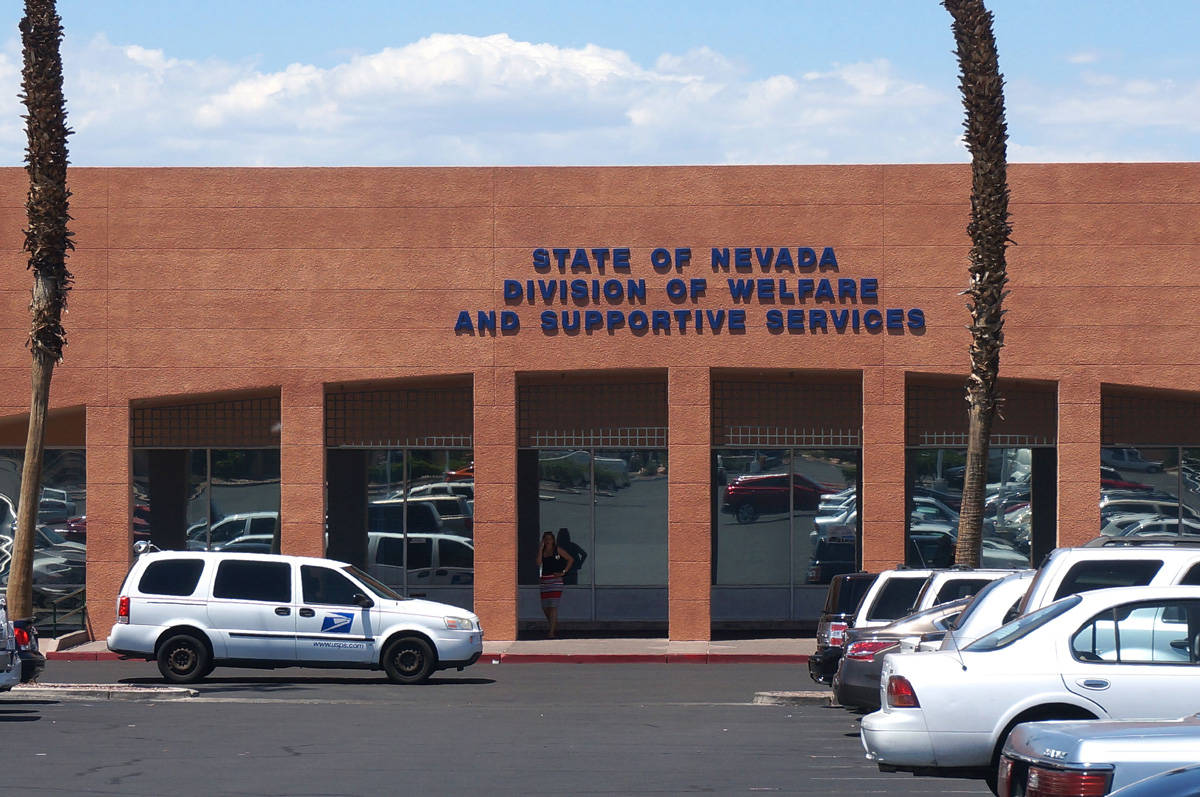Food, welfare assistance applications skyrocket in Nevada
Applications for food and welfare assistance in Nevada have skyrocketed since the outbreak of COVID-19 led to thousands of layoffs in the Las Vegas Valley, but many others have been unable to apply because of a gridlock in the state’s unemployment system.
Those numbers are projected to grow after Gov. Steve Sisolak on Wednesday extended the closure of nonessential businesses to at least April 30.
The total number of applications received in March by the Department of Health and Human Services’ Division of Welfare and Supportive Services increased by more than 23,000 to 63,170 compared with 39,498 in February, according to preliminary numbers from the agency.
Applications for food aid through the Supplemental Nutrition Assistance Program have increased from 18,125 to 30,088.
Requests for Temporary Assistance for Needy Families also nearly tripled in March to 7,759, up from 2,661 in February. Applications for medical aid also increased from 18,712 to 25,323.
‘All hands on deck’
The phone lines are packed with callers, said Robert Thompson, deputy administrator for the Nevada Department of Health and Human Services. He estimates the agency has received 2,500 to 3,200 calls per day since the Division of Welfare and Supportive Services closed its doors because of COVID-19 concerns March 23. That is three times more than its normal call volume.
“Our productivity is higher because it is all hands on deck,” he said, adding that auditors and trainers are now working in the call center too.
About half of people aren’t getting through on the phone lines because only so many can wait to talk to a representative on the phone systems, Thompson said, while adding it was likely they would call back until they got through. That is a problem occurring nationwide, as a record 6.6 million Americans applied for unemployment benefits last week, doubling the record set the previous week.
Though the number of applications has skyrocketed, technological advancements have made it easier for workers to process information. When a resident applies for assistance electronically, it takes staff 70 percent less time to process the application.
“The technology is making this manageable, and thank goodness we put the technology in place when we did,” he said, adding that the expansion of Medicaid under the Affordable Care Act streamlined the medical aid process.
“If the volume continues, we’re going to start losing capacity,” Thompson said. “We encourage everyone to apply electronically.”
Frustrating factor
Many have applied for food aid, but some are unable to because of issues at the Nevada Department of Employment, Training and Rehabilitation.
Every morning Glennis Rhoden calls the DETR at 8 a.m. hoping to reach a person who could review her application for unemployment support.
The North Las Vegas resident usually is on the phone for about an hour and a half before she receives a message that the queue to speak to a representative is full.
“I have no income coming in; the bills haven’t stopped. It’s just frustrating,” she said.
The holdup has affected her eligibility for assistance at the Division of Welfare and Supportive Services.
To qualify for food assistance, her unemployment application must be accepted or rejected by the department, she said. Until that happens she is unable to apply for food assistance.
Rhoden previously worked for the city of Las Vegas under Youth Development and Social Innovation, a before- and after-school program. She was laid off when classes were canceled because of the COVID-19 outbreak and will remain unemployed by the city until school starts again.
“I got correspondence from my housing that (the mortgage is) still due — there’s no program in place,” she said. “At one point I thought it would sort itself out until it was extended. Now I’m not too sure.”
Contact Alex Chhith at achhith@reviewjournal.com or 702-383-0290. Follow @alexchhith on Twitter.











































